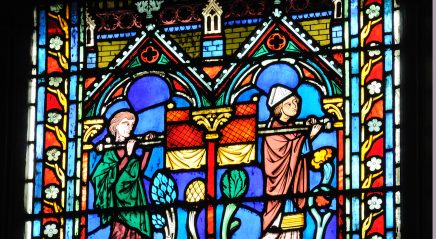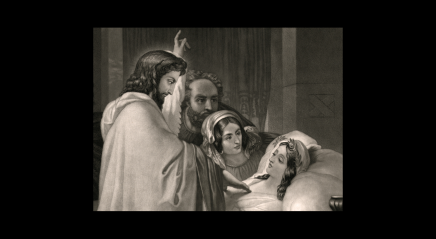Lectionary for July 28, 2024
10th Sunday after Pentecost
2 Samuel 11:1-15; Psalm 14;
Ephesians 3:14-21; John 6:1-21
I’ve had the great benefit of working for several excellent bosses. I served on staffs with Bishop Suzanne Dillahunt of the Southern Ohio Synod and Bishop William Gafkjen of the Indiana-Kentucky Synod. Now I work for Brett Smith, a faith and entrepreneurship scholar at Miami University in Oxford, Ohio. These bosses share two excellent qualities: they are wise and humble enough to know the difference between what they are and are not called to do, and they seek their vision for leadership from God and wise counselors instead of simply carrying out the will of the loudest voices at that moment.
Obviously, one wants to be empathetic and responsive to all neighbors. Leaders also are called to lead, not simply follow the crowd. This week, we have a couple stories of true leaders who rejected pressure so they could do what God had called them to do.
We turn to 2 Samuel and think that this will be another story of David being the hero—except here, he is the villain. In a time in which kings went off to war (2 Samuel 11:1), the Israelites’ king didn’t. David stayed home, and from a high vantage point in the palace he saw a woman bathing. The servants reminded David that Bathsheba was the wife of one of the most faithful members of his inner circle and the daughter of another trusted soldier (11:3; 23:34, 39). David disregarded this unsubtle warning and brought Bathsheba to him, without any notion of checking for her consent. Soon after, Bathsheba discovered that she was pregnant with her rapist’s child.
To cover up his evil behavior, David ordered Uriah home from the front and induced him several times to go to Bathsheba. Each time Uriah refused, saying in effect, “Joab, my compatriots, the army and the ark of God are out in tents. How can I betray their solidarity and enjoy a night indoor, in my bed, with my wife?” (11). When efforts to erase his evil behavior didn’t work, David—without hesitation—had Joab, his military commander, essentially murder Uriah. This story has one leader—Uriah the Hittite. Even when the king commanded him to go home and enjoy Bathsheba, Uriah’s allegiance to God and his adopted countrymen (he wasn’t an Israelite by birth, after all) triumphed over David’s wicked scheme.
God says, “Do not follow a crowd in doing evil.”
Hundreds of years later, Jesus was showing sign after sign to confirm to the people that he was the messiah. Even when he attempted to flee from the people, they pursued him (John 6:1-2). So Jesus withdrew even farther up a mountain. Yet, when he saw that the people were still coming to him, even up the hill, he decided to feed them miraculously. After this miracle, even more people claimed him as the prophet (Deuteronomy 18:14-22) because of the powerful sign of this mass-feeding.
Then an interesting thing happened: Jesus withdrew even higher up the mountain—by himself without his disciples—because he knew that the mob wanted to take him and force him to be king (John 6:15). Jesus didn’t trust anyone, even his disciples apparently, to allow him to continue performing signs (the Gospel of John is passionate about Jesus’ signs) without trying to march him to Jerusalem and have him fight the Romans.
The disciples, I think, knew that Jesus was wary of their intentions toward him. They left on their own in a boat without waiting for him. After confirming that he was, in fact, the messiah, they were willing to allow him to enter one of the boats (21). Had they previously been unwilling? Were they resentful that Jesus wouldn’t go along with their plans to make him king? That’s the way the text reads. The disciples left a boat for Jesus to row himself back over to Tiberias (22). This could have been a parting of the ways, but Jesus came back to them in the night and saved them—not just from the wind and the waves but also from their desire to make Jesus king by force.
Whether the pressure comes from a king or a mob that would force someone to be king, God says, “Do not follow a crowd in doing evil” (Exodus 23:2). Jesus and Uriah show the way of resisting the baser, violent influences of others and staying true to the path of God.







